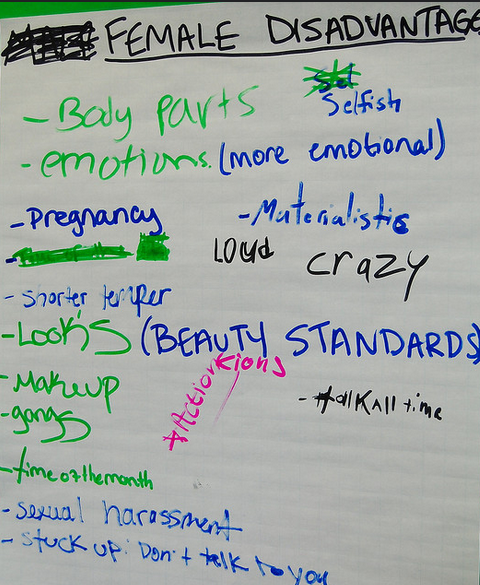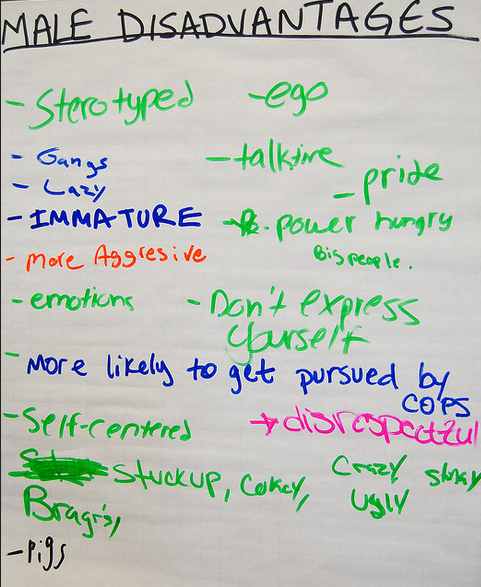Gender Stereotypes: Damaging Brands, Confidence and Self Esteem
Gender Stereotyping: It is harming people, not just your brand
Gender stereotypes and the effect that they have upon brands marketing and the media is an issue on everybody’s lips at the moments and rightfully so. New research from The Pineapple Studio has shown that girls prefer brands that empower them and help to define and discover who they are in ways that don’t match up to stereotypes that currently exist in marketing, leaving those who use gender stereotypes with outdated marketing materials.
The article on marketing week goes on to discuss how brands that default to gender stereotypes in marketing materials put off a large proportion of the brand for good, therefor missing out on a lucrative market and “endangering brand loyalty from a young age.”
Once girls hit 13 they start to feel less confident and more worried about the world around them. The number of girls found to be feeling positive about their futures takes a swift decline at the age of 13-14 where 55% say they feel confident compared to 62% of 8-10s and 63% of 11-12s.
#LikeAGirl
Always #LikeAGirl was an incredible campaign, which, if you haven’t seen it, focuses on giving back a positive meaning to the phrase “like a girl” which is often used in a negative or insulting way in an attempt to end gender stereotypes. If you haven’t seen the ad, watch it now. The result? #LikeAGirl was the most tweeted hash tag from The Super Bowl.
Perhaps the saddest thing is that this campaign was such a stand out, clearly, as marketers, we’re missing the mark with being truly empowering and clearly this needs to change within marketing and we need to look deeper than an “endangering brand loyalty” view point.
Gender Stereotypes Damage Confidence
Look deeper than brand loyalty, look at them figures, notice the drop in young girls’ confidence and recognise that we are in a profession that can drive change, just like the #LikeAGirl campaign which has generated a conversation and helped to inspire rather than force unrealistic ideals upon the world.
Clearly, gender stereotyping and the image we create in the media (including our marketing materials) impact on confidence is a very real issue, it forces expectations and pressures on both women and men, some of which are documented in this project.
These images were taken from a class of ninth graders in the US. That is 14-15 years old. The impacts that the media and marketing materials have upon their views of disadvantages is really sad.
(Many thanks to the contributor for the images that can be found on Flickr)
We have already seen positive steps forward on this front, as there has been a 46% drop in the proportion of online retailers that using gender to categorise toys but it clearly is not a big enough step forward.
Working Together to Overcome Gender Stereotypes in Marketing
As marketers, we have great influence, decisions we make, in some industries more than others, every image we use, the tone of our voice can have an impact and the way we target young people, regardless of gender, needs to change.
So when you’re next targeting men, women or children, put gender stereotyping at the forefront of your mind, remember the ideals that don’t help encourage confidence but in some instances, slowly instill fear and damage confidence then look to break the mold with your campaign.
In the future, approach your campaigns with a reassuring, realistic and non stereotypical, forward thinking marketing view point and make sure you believe in the ideals that your campaign reflects. Not only could you be impacting on peoples views of themselves and the world but your honesty, passion and realistic targeting will ultimately increase brand loyalty and more importantly drive the change that is so desperately needed and lets face it, if you use these stereotypes, it's lazy, outdated marketing.


